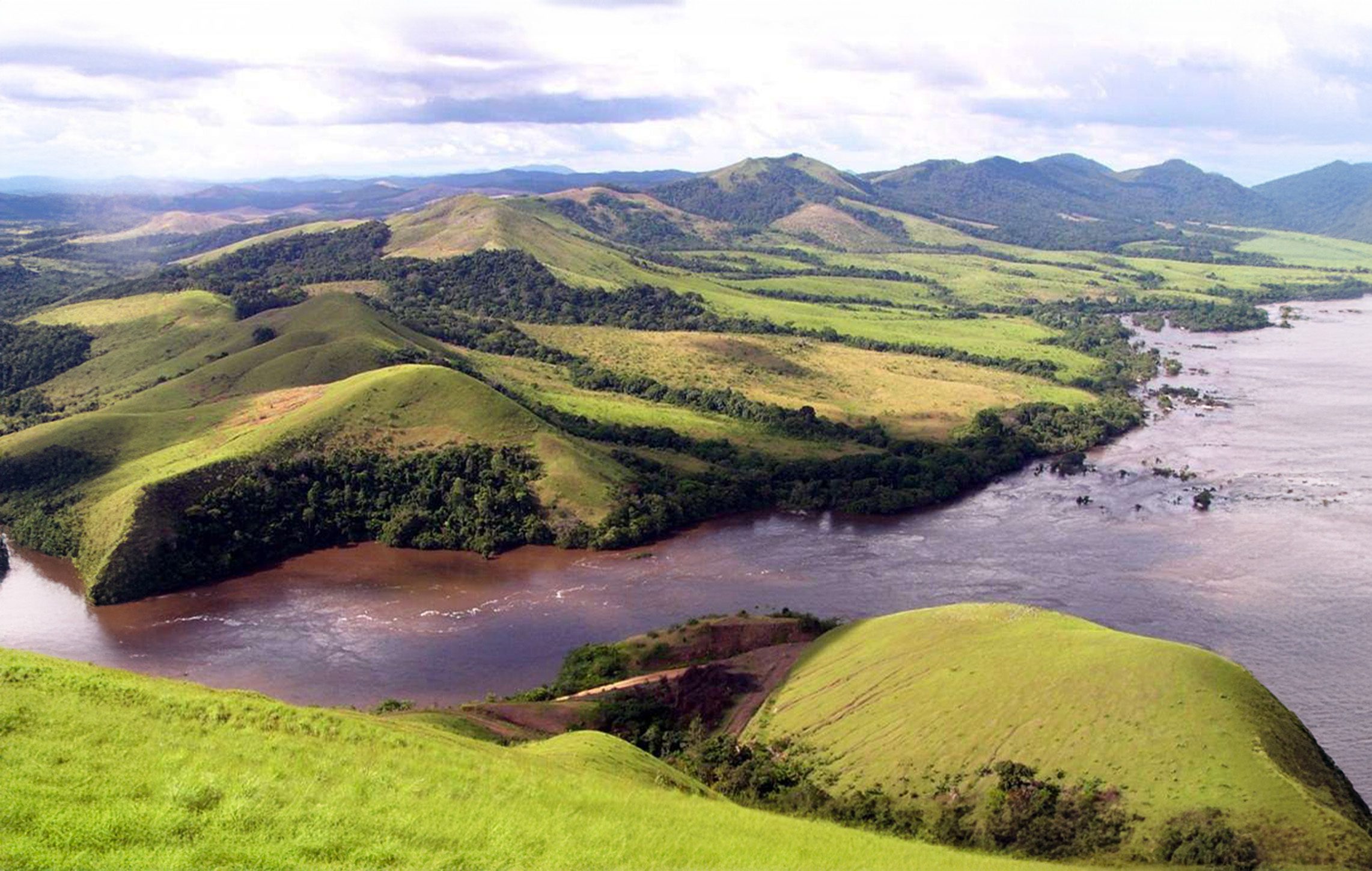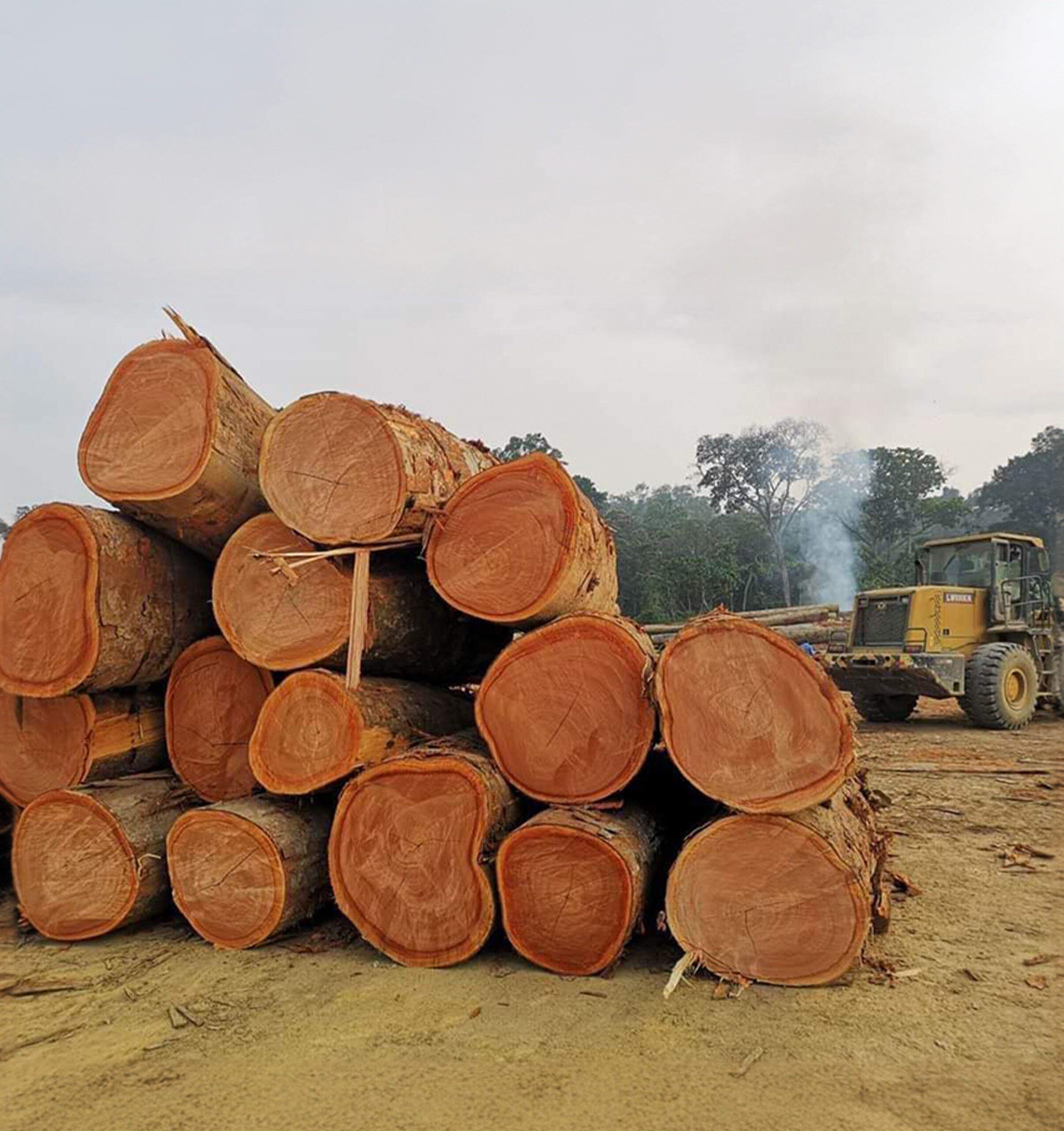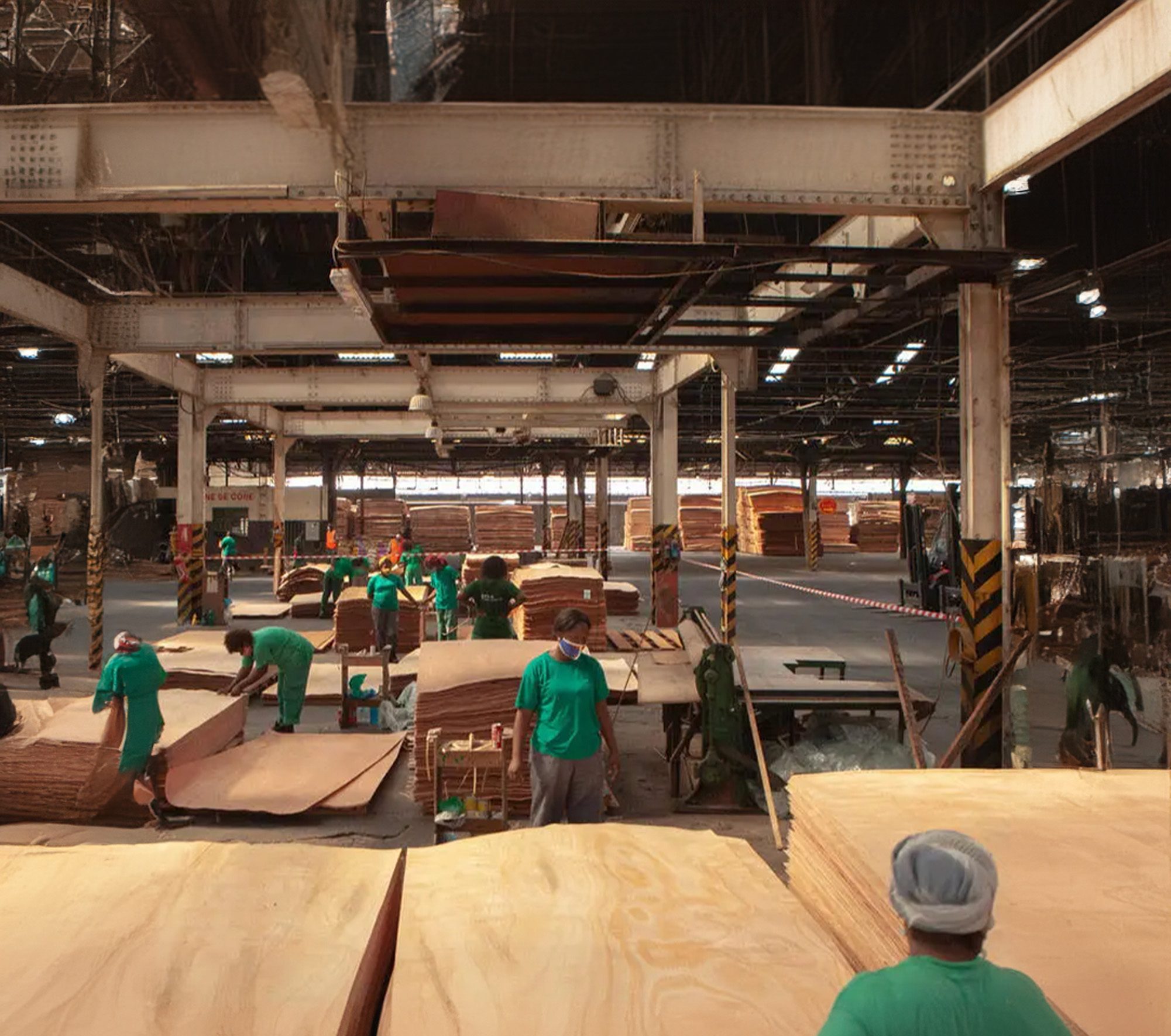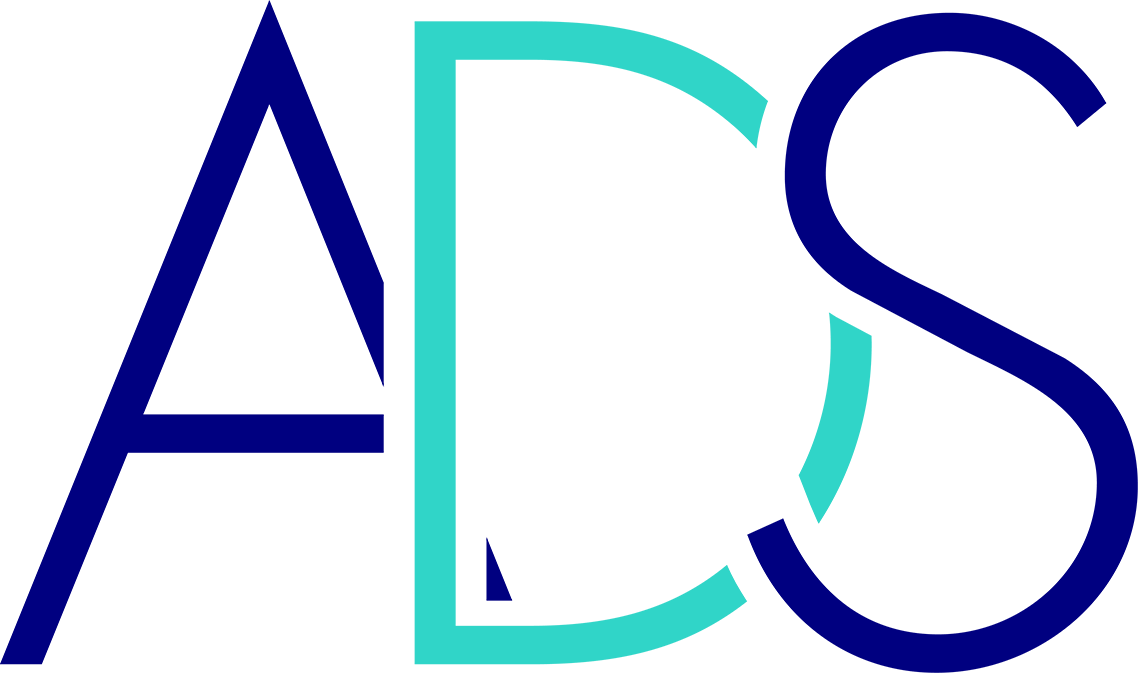
Gabon: A Model for Conservation Remarkable Achievements in Preserving Wildlife and Natural Rain Forest
A sea of green…
It was some time in the mid-1980’s, and I was a passenger on a 16-seater aircraft flying from Libreville to Moanda, situated deep in Gabon’s interior. I peered out the window as the plane rose above the outskirts of the Gabonese capital. I was greeted with a vast sea of green. The forest (more aptly ‘jungle’), stretched all the way to the horizon. One passenger remarked that it had taken days to locate a downed helicopter that had crashed into this dense mass of tall trees. I had read somewhere that over 85% of the country’s total surface area is covered by rainforest.

But what about the forest’s wildlife population…
Gabon is blessed with rich biodiversity and a wide variety of wild animals. Some are unique to the dense jungles of central and west Africa, such as the smaller forest elephants. Forest buffalo for example, are far lighter in weight than Cape buffalo, and have a distinct reddish hide. There are also hippos, leopards and hyenas and rare primates including lowland gorillas, chimpanzees and the colourful mandrills. Scientists have been intrigued by discoveries of new bird species, the African gold cat, and even an orange crocodile.
It was with much excitement, that I joined a convoy to transport supplies from the port of Owendo near Libreville to a project in the Haut-Ogooué Province, situated about 750 kilometres in the interior. Our route would take us through part of the Lopé National Park, and I hoped for my first viewings of Gabon’s unique wild animals. The park was described as a mosaic of jungle and savannah, and surely I would at the least, see animals on the open grasslands?
But it was disappointing. All we came across were a few waterbuck and a single bushbuck — antelope with which I was already very familiar. Nevertheless, I conceded that the dense tropical forest and vegetation could not make for easy wildlife-spotting.

The problem of illegal logging…
The habitat of Gabon’s fauna is largely its vast rainforests, which must be protected if the species are to survive and flourish.
Gabon has some of the best hardwoods in the world including the scarce Gabon ebony. It is also the source of 90% of the world’s Okoumé softwood. Timber exports are the country’s third main export item after oil and manganese and accounts for 9% of the total value of its exports. The value of its processed timber exports is around US$ 770 million per annum.
It has been reported that Gabon has allocated some 10,7 million hectares of its 23,5 million hectares of rainforest for exploitation. However, a 2023 report finds that 15,5 million hectares are being exploited by about 40 logging companies.
According to a 2019 report by the Environmental Investigation Agency, illegal logging could be costing the country about US$ 1 billion per annum. The Gabonese government banned the export of logs in 2010. However, it is generally acknowledged that some measure of illegal logging continues. In 2019, the then-President Ali Bongo fired his vice-president and forestry minister over the discovery of containers of wood that had been illegally logged. There are allegations that some foreign companies are not abiding by standard logging regulations.
My family had only recently arrived in Gabon when my wife and I decided to take our two young children for a dip at the beach opposite our hotel. The waves were quite high, so we ensured that the kids played in the shallows. There were few people on the beach. Suddenly, a French woman came running towards us shouting furiously that we must immediately move our children because one of the huge logs rolling freely in the surf could kill them! These logs had broken loose from fastened batches being floated down-river to the nearby port.

But strong initiatives to add value to the timber industry and to preserve the natural rainforest…
Gabon has to walk a tight line between preserving its rainforests and still deriving economic benefit from their commercial exploitation.
There is considerable commercial activity in the timber industry. Major companies operating in Gabon include Rougier, the Cora Group, Precious Woods and Compagnie des Bois du Gabon. In 2022, the African Conservation Development Group and the Cora Group of Italy established a joint venture company, African Equatorial Hardwoods to manage 400 000 hectares of forest and to develop a wood processing facility at Port Gentil. The Gabonese authorities encourage such value-add industrial initiatives. The country aims to become a world leader in processed timber.
A good number of measures have been enacted to protect the rainforests. In 2001, the Forest Law was passed, and later revised in 2016 to further guarantee governmental protection. In 2010, a Voluntary Partnership Agreement (VPA), was concluded with the European Union, which stipulated that all timber companies within their jurisdictions must comply with the relevant laws of the partner countries. In 2019, Gabon became the first country of the Congo Basin to implement the Pan-African Forest Certification Scheme (PAFC) concerning forestry management and traceability to final product. The ‘Gabon Emergent 2025’ or ‘Rising Gabon 2025’ national plan features the timber industry as a major pillar of the country’s future development. In 2022, the total area of Gabon’s natural forest managed under certification of the International Forest Stewardship Council (FSC), rose to over 2 200 000 hectares.
One noteworthy initiative is the introduction of eucalyptus plantations to limit rainforest harvesting.

The apparent stance of the new Gabonese authorities…
On 30 August 2023, a military coup took place in Gabon. This brings the question: will the new authorities continue the pro-conservation policies of their predecessor?
The early signs are promising. The new minister of water and forests has issued a special order instructing the timber industry to adopt a new digital tracking system to slow deforestation and improve industry transparency. The 2024 Finance Bill includes plans for additional taxes to be levied on non-certified logging and timber companies.
Over recent decades, Gabon has established a system of national parks comprising a network of 13 parks. The country’s new leaders are likely to continue the protection of its wildlife by utilising this system.

